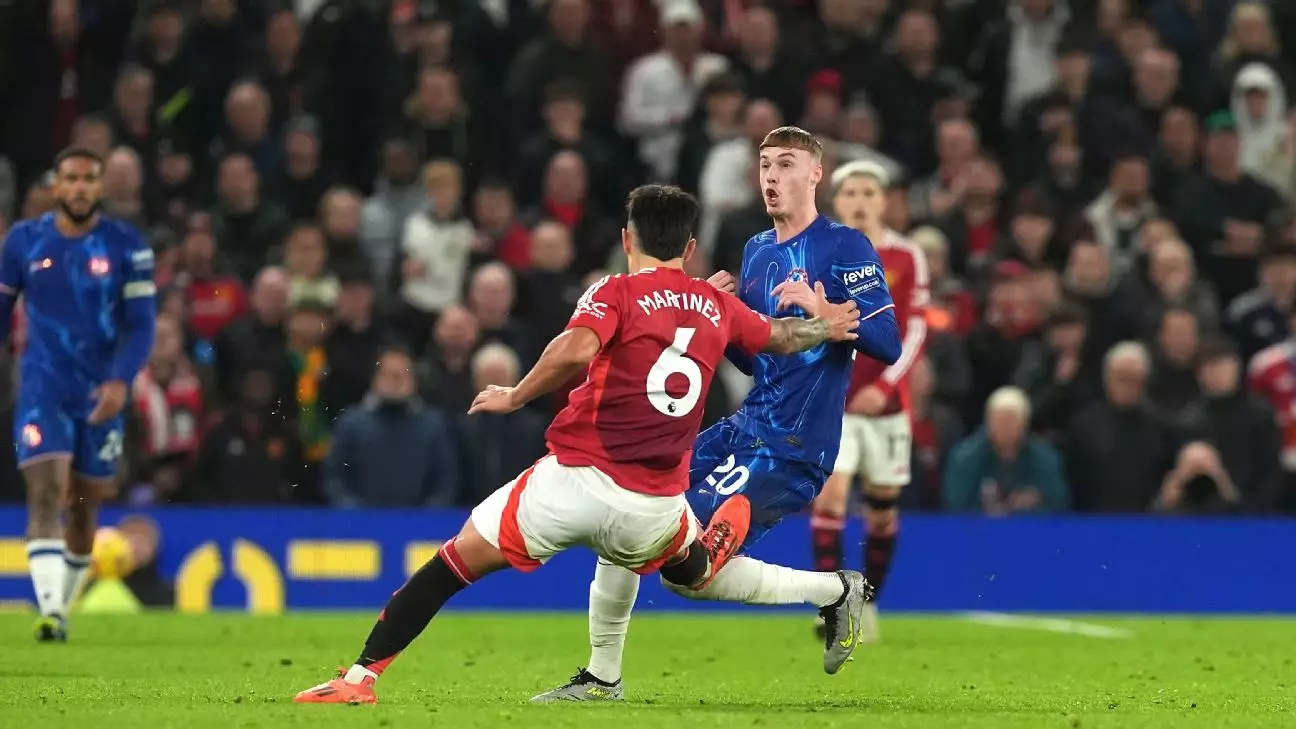In a tense Premier League clash at Old Trafford, Chelsea’s head coach, Enzo Maresca, voiced strong criticism regarding a controversial incident involving Manchester United’s defender, Lisandro Martínez. The match, which ended in a 1-1 draw, was marked by moments of heated debate, particularly surrounding a tackle on Chelsea’s Cole Palmer. Maresca argued that Martínez’s challenge warranted a red card due to its reckless nature, igniting a discussion about the standards of officiating in high-stakes matches.
The incident unfolded late in the game, with Martínez booking for his tackle, which caught Palmer high on the knee. Although the referee, Robert Jones, initially deemed the challenge yellow card worthy after VAR review, Maresca contended that the nature of the challenge revealed a blatant disregard for player safety. Many, including former United captain Roy Keane, echoed Maresca’s sentiments, labeling it a “nasty tackle” and suggesting that Martínez had narrowly escaped harsher punishment.
The Referee’s Decision and VAR Controversy
The referee’s on-field decision to issue only a caution, despite the VAR review, raised eyebrows among fans and analysts alike. The Premier League’s interpretation classified the incident as a “reckless challenge rather than serious foul play,” but this ruling did little to quell the outcry from those who witnessed the tackle. The question of consistency in officiating loomed large, as many pointed out discrepancies between different matches and different refereeing crews.
Maresca’s dissatisfaction with the outcome was palpable as he expressed that the challenge was indicative of a wider issue in football regarding how player safety is prioritized. He asserted that when a challenge focused solely on the player and disregarded the ball, it should unequivocally be punished with a red card. This perspective underscores the ongoing struggle within the sport to align refereeing standards with the expectations of player protection.
The Aftermath and Moving Forward
Following the match, Ruud van Nistelrooy, United’s interim head coach, responded to the controversy by admitting he hadn’t witnessed the tackle firsthand and would reserve judgment until he had seen the replay. This statement highlights the peculiar nature of modern football, where match officials often rely on technology to assist in their decisions, yet such technology still sparks debate over its efficacy and application.
The discussion surrounding the Martínez challenge exemplifies the tension inherent in football’s governance and officiating. While some argue for stringent measures to protect players, there remains a significant faction that believes in maintaining the flow and physicality of the game. As Chelsea and Manchester United continue their campaigns, the outcomes of such decisions linger over both teams, influencing player morale and tactical approaches.
Ultimately, the clash at Old Trafford served as a microcosm of the broader challenges facing football today. As more stakeholders engage in debates around fairness, accountability, and player safety, it is clear that the path forward will require a delicate balance between respecting the game’s physicality and prioritizing the well-being of its athletes. This moment will undoubtedly resonate as the season progresses, reminding all involved that every decision made on the pitch carries significant weight.

Leave a Reply